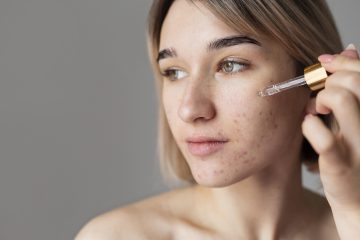Achieving smooth, radiant, and even-toned skin is a beauty goal shared by many, and while makeup can create the illusion of flawless skin, there’s something powerful about feeling confident in your natural complexion. The good news? You can get an even skin tone without relying on foundation or concealer. It just takes the right routine, patience, and a bit of consistency.
Here’s how to get started:
1. Identify the Root Causes of Uneven Skin Tone
Before diving into products and routines, it’s important to understand what causes uneven skin tone. Some common culprits include:
- Sun exposure leading to hyperpigmentation
- Hormonal changes
- Acne scars
- Inflammation
- Dryness or irritation
Identifying the cause helps you choose the most effective solutions. For example, dark spots from sun exposure require different care than redness from sensitivity or acne.

2. Commit to Daily SPF Use
If you’re only going to do one thing for your skin tone—make it sun protection. UV damage is a major factor behind dark spots, discoloration, and early signs of aging. Use a broad-spectrum sunscreen with at least SPF 30 every single day, rain or shine.
Opt for a sunscreen that suits your skin type. Lightweight, non-comedogenic formulas are great for oily or acne-prone skin, while moisturizing SPF creams are perfect for dry or mature skin. For personalized recommendations, consider consulting a skin specialist who can assess your skin’s specific needs and suggest the most suitable sunscreen options.
3. Exfoliate Regularly (But Gently)
Dead skin cells can make your complexion look dull and uneven. Regular exfoliation helps slough off those dead cells, revealing brighter, smoother skin underneath.
There are two types of exfoliants:
- Physical exfoliants like scrubs (go for fine, gentle grains to avoid micro-tears)
- Chemical exfoliants such as AHAs (like glycolic or lactic acid) and BHAs (like salicylic acid). These are commonly used in chemical peels to improve skin texture, reduce pore congestion, and address uneven skin tone.
Aim to exfoliate 2–3 times a week, depending on your skin’s tolerance. Over-exfoliation can lead to irritation and redness, so always follow with a soothing moisturizer.
4. Incorporate Brightening Ingredients
There are several skincare ingredients known to help fade dark spots, smooth texture, and brighten your complexion. Look for these in your serums or moisturizers:

- Vitamin C: A potent antioxidant that fades hyperpigmentation and boosts radiance.
- Niacinamide: Helps reduce redness, even out skin tone, and improve barrier function.
- Licorice Root Extract: Calms the skin and reduces dark spots.
- Alpha Arbutin: A gentle skin brightener often used to treat discoloration.
- Tranexamic Acid: Great for melasma and stubborn pigmentation.
These ingredients work best when used consistently, often taking several weeks to show results—so be patient.
5. Hydrate Your Skin Inside and Out
Dry, dehydrated skin can emphasize unevenness and texture. Make sure you’re drinking plenty of water daily and using hydrating products like:
- Hyaluronic acid serums
- Ceramide-rich moisturizers
- Gentle toners with hydrating ingredients like glycerin or aloe
Well-moisturized skin not only looks smoother and plumper but also heals and renews itself more effectively.
6. Treat Acne and Breakouts Promptly
Breakouts can lead to post-inflammatory hyperpigmentation—those dark spots that linger long after the pimple is gone. Keep acne in check with targeted ingredients like:
- Salicylic acid (a BHA that penetrates pores)
- Benzoyl peroxide (kills acne-causing bacteria)
- Tea tree oil (a natural antibacterial agent)
Don’t pick at pimples, as this increases the chance of scarring and uneven skin tone.

7. Support Skin Health with a Balanced Diet
What you put into your body is just as important as what you put on your skin. Nutrient-rich foods can help your skin stay clear and glowing. Focus on:
- Antioxidant-rich fruits and vegetables
- Omega-3 fatty acids from fish or flaxseed
- Hydrating foods like cucumber and watermelon
- Cutting back on processed sugar and dairy, which can contribute to breakouts in some people
8. Get Enough Sleep and Manage Stress
Lack of sleep and chronic stress can show up in your skin as dullness, irritation, and even breakouts. Aim for 7–9 hours of sleep a night and incorporate stress-relieving activities into your daily life—be it journaling, meditation, exercise, or simply unplugging for a while.
The Bottom Line
You don’t need a full face of makeup to have radiant, even skin. With consistent skincare, mindful lifestyle choices, and a little patience, you can boost your natural glow and feel confident in your skin—no filters or foundation required.
